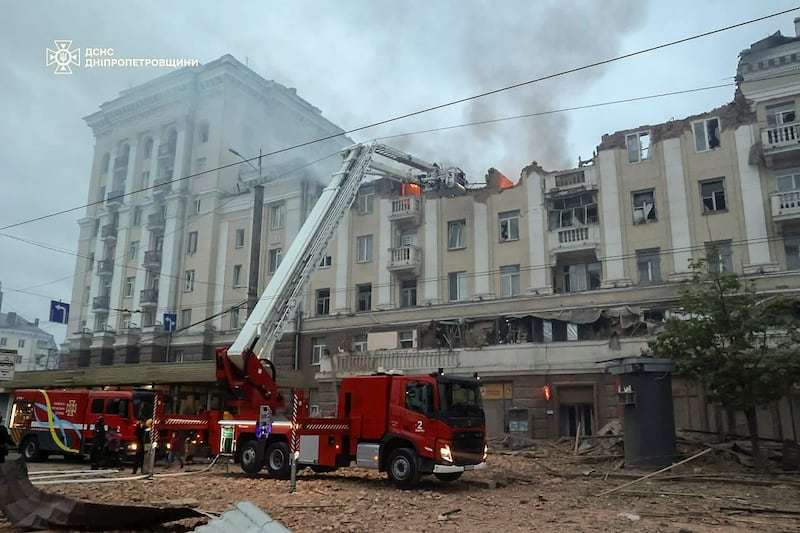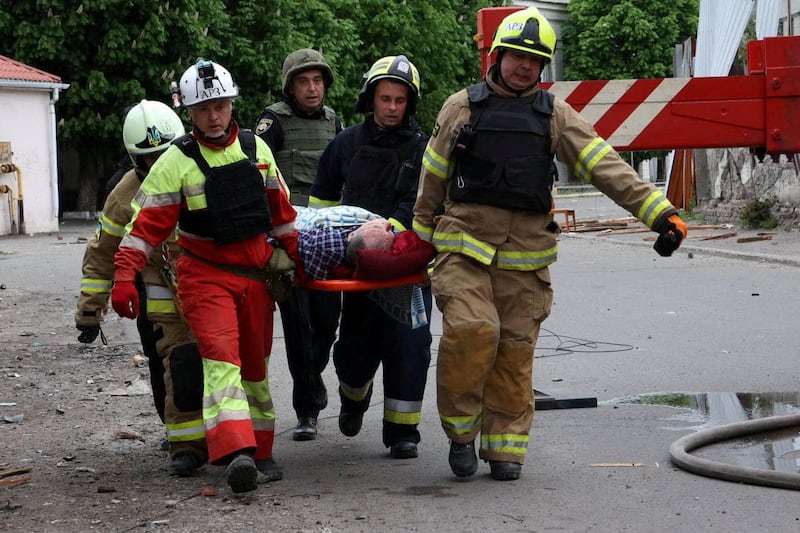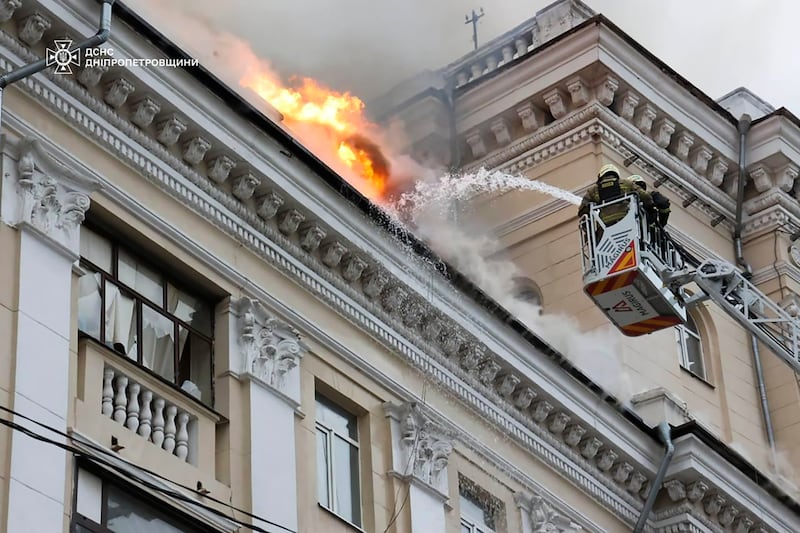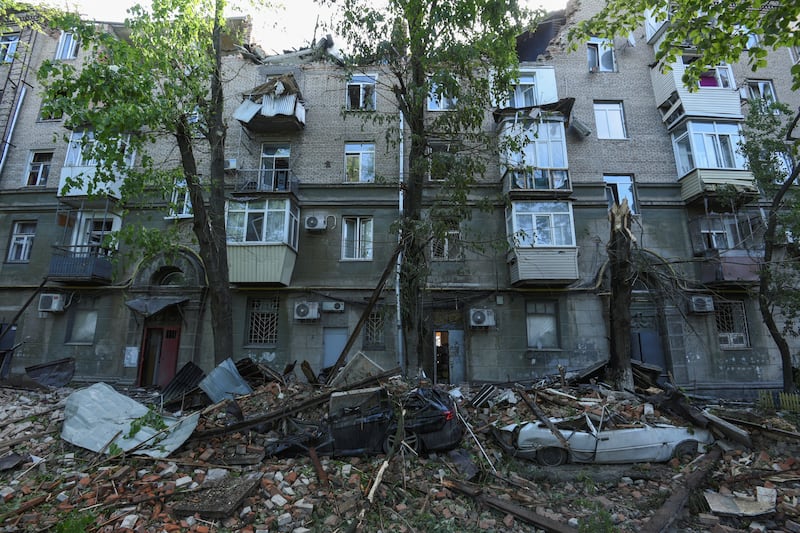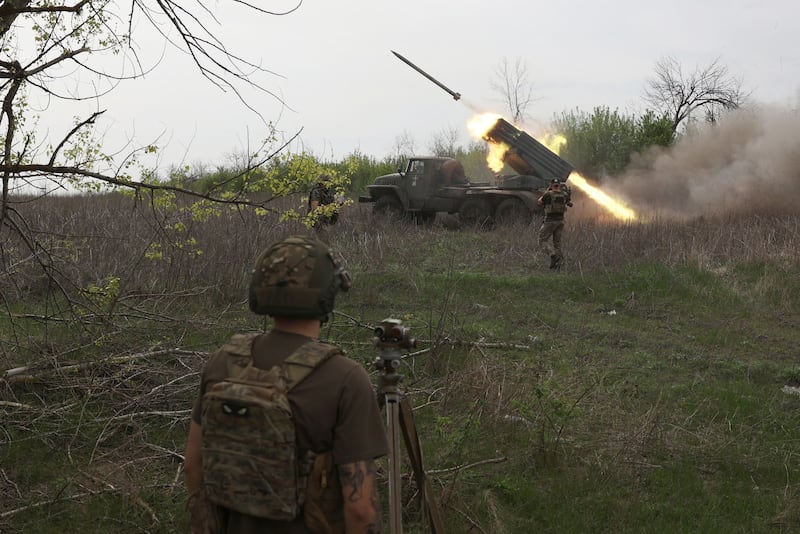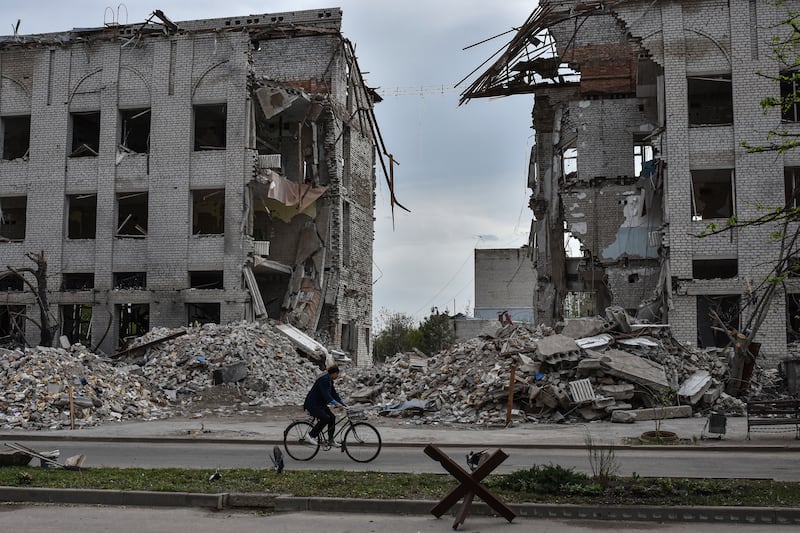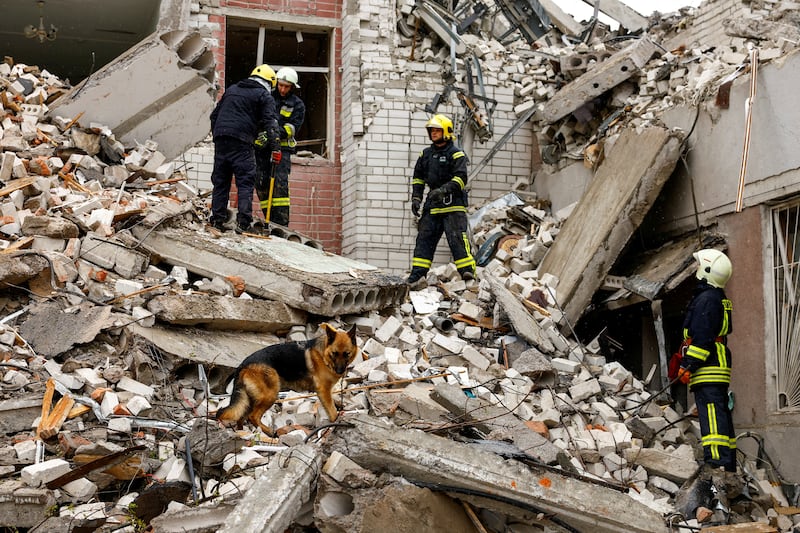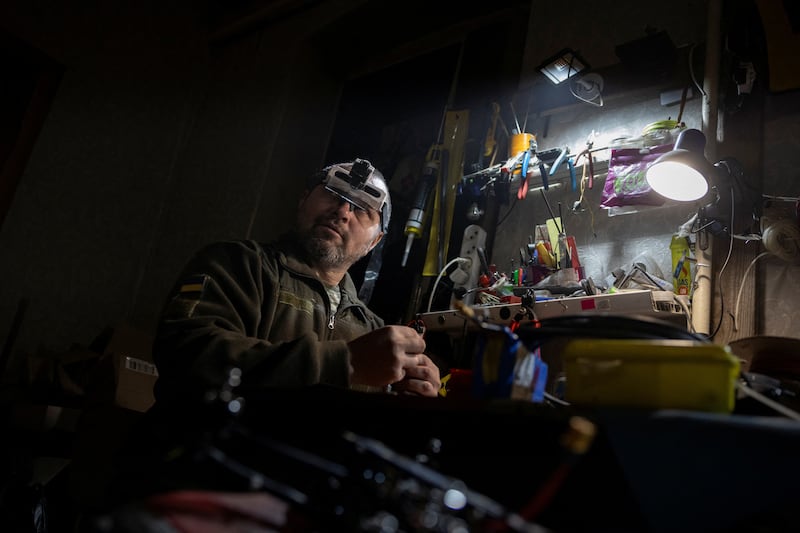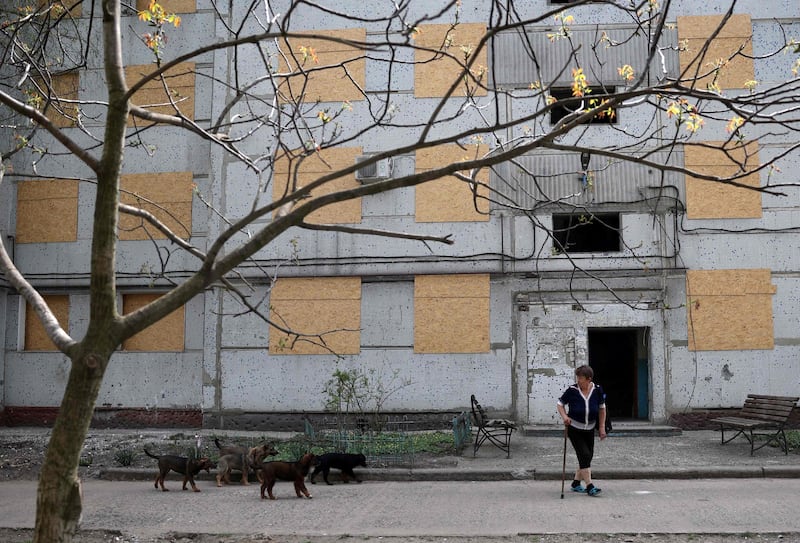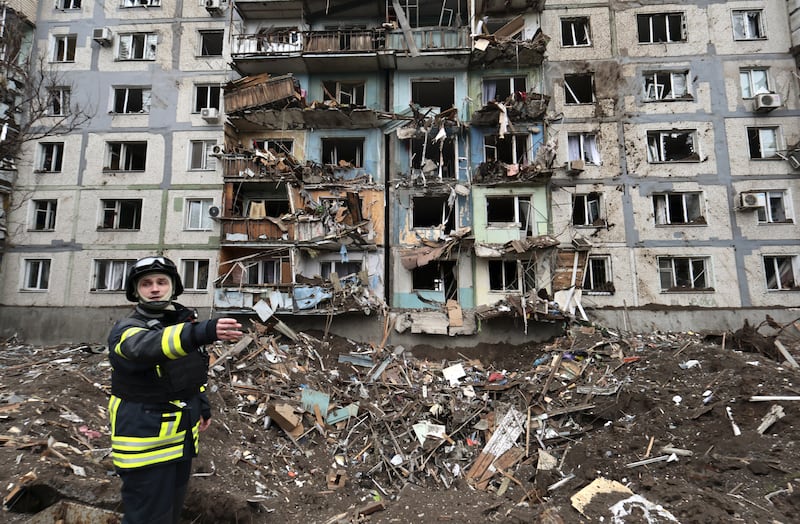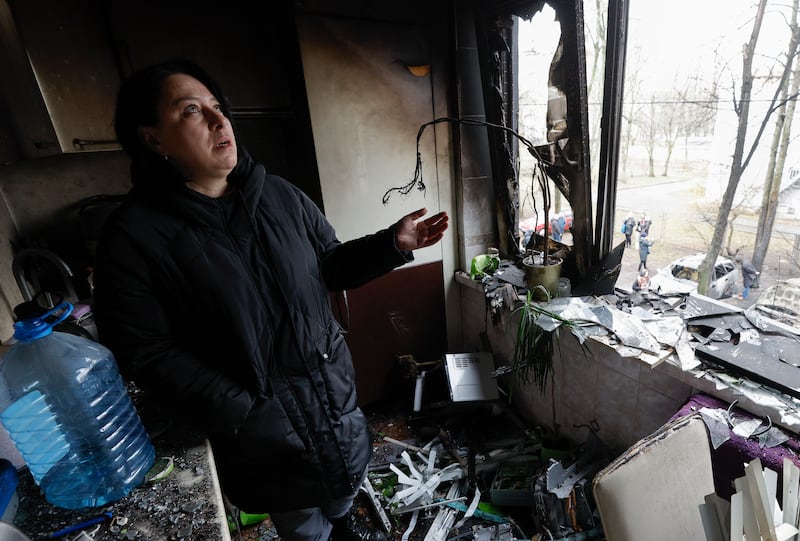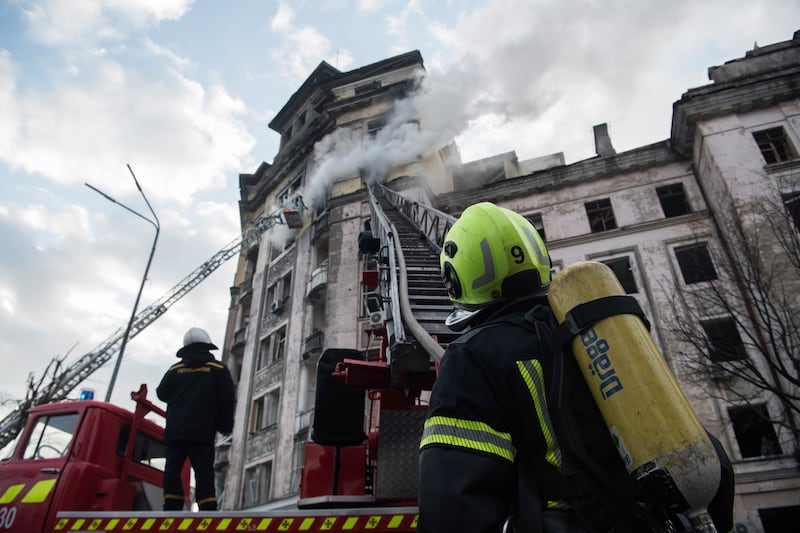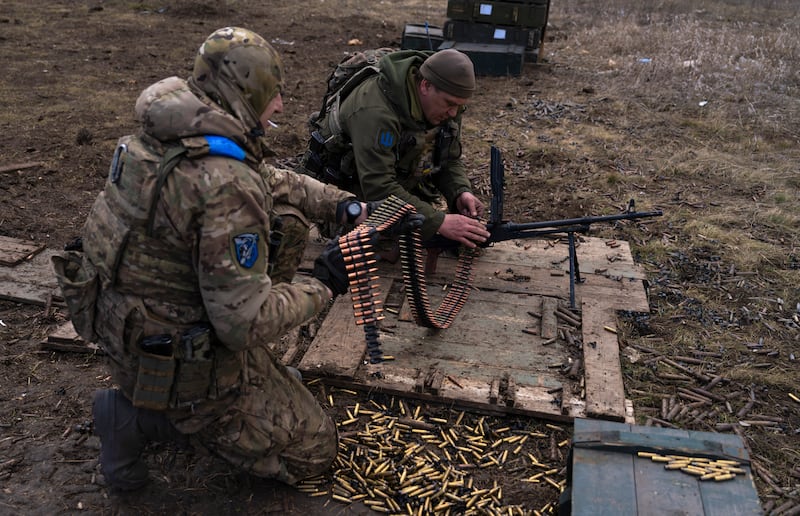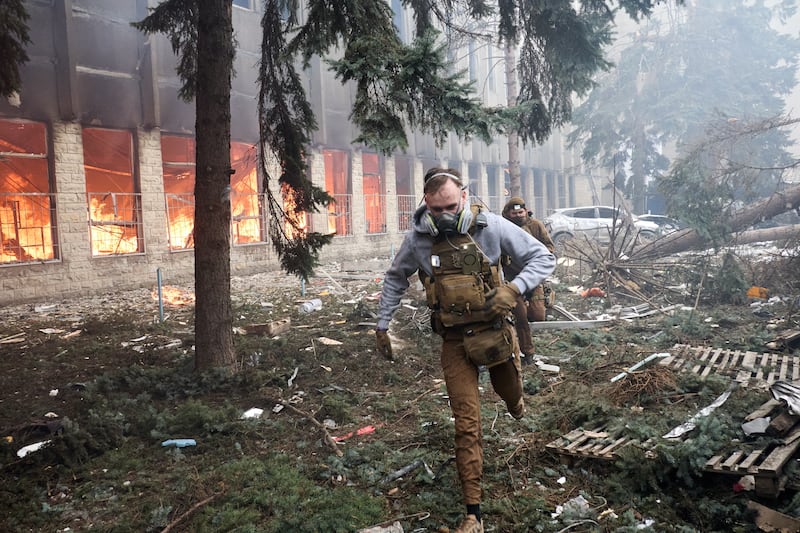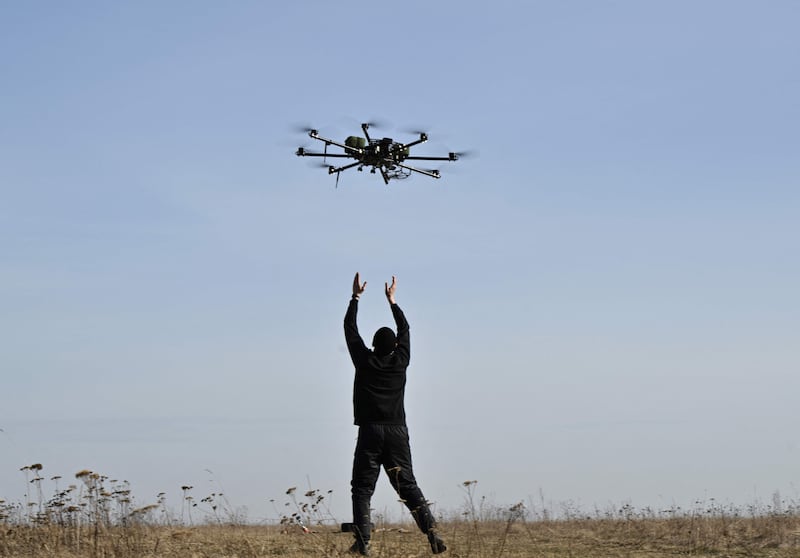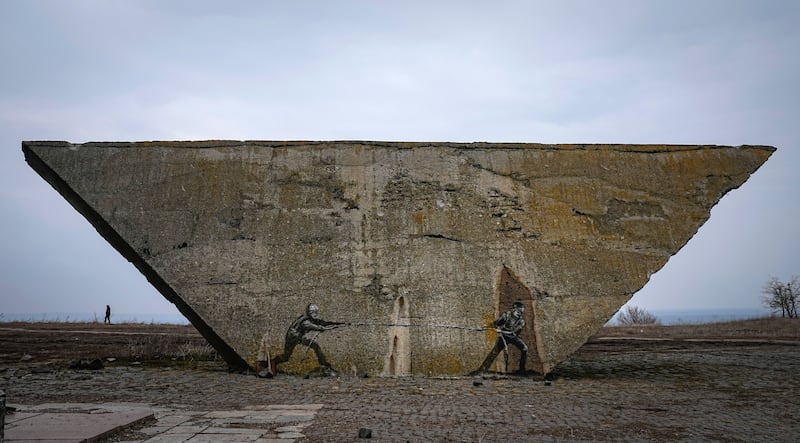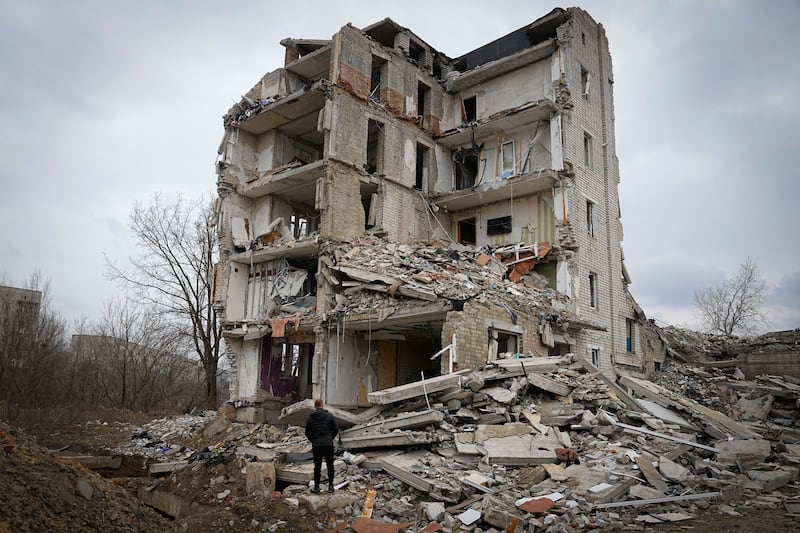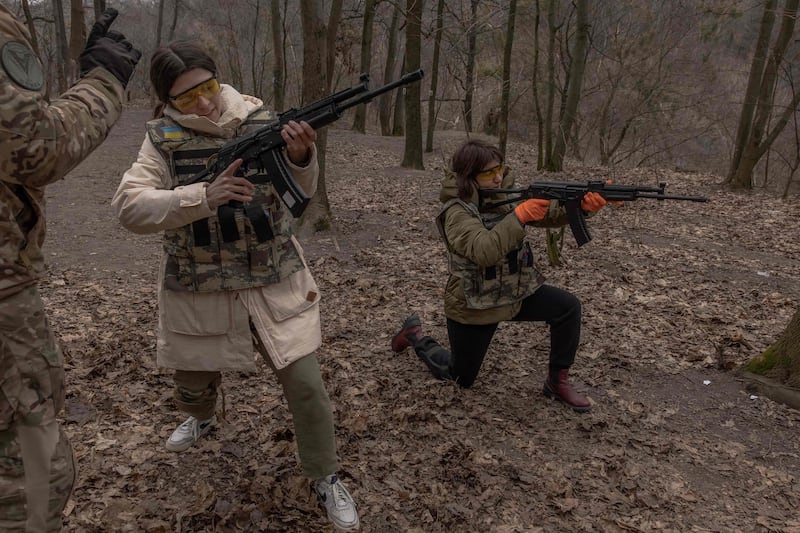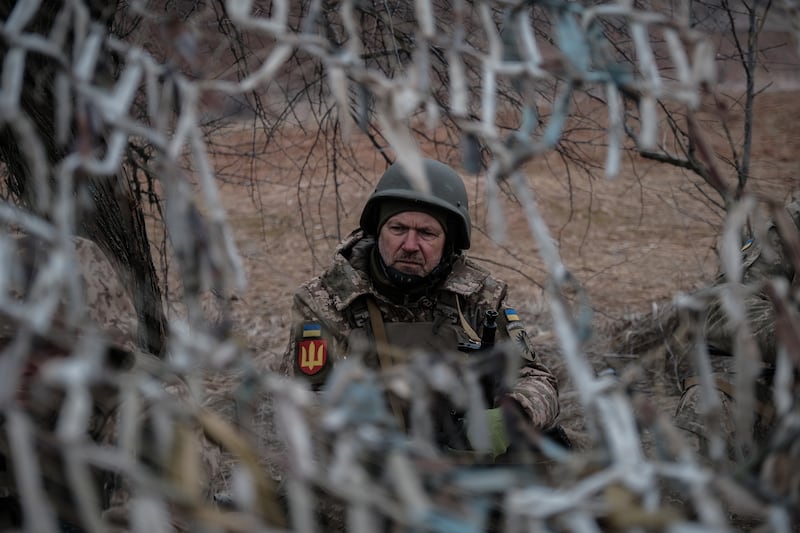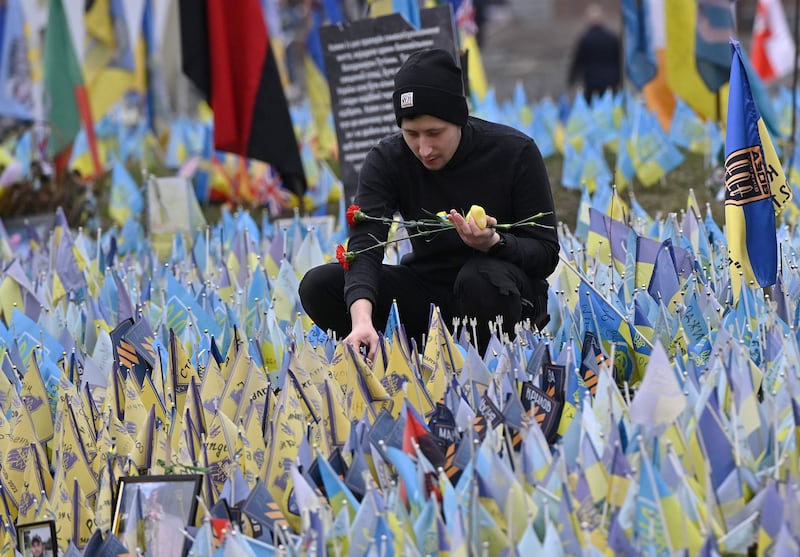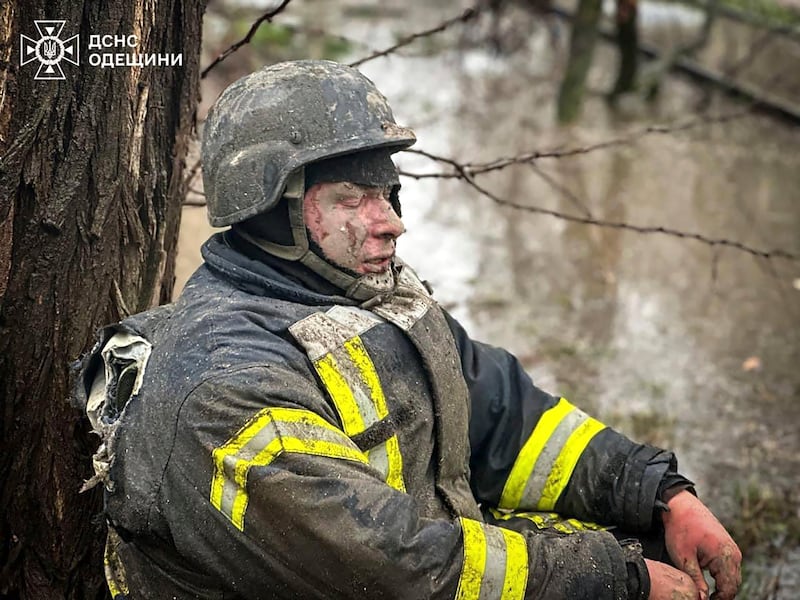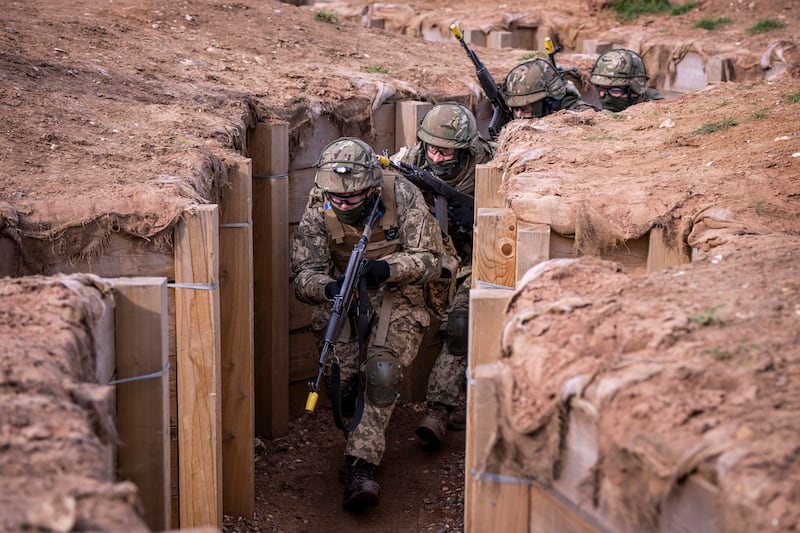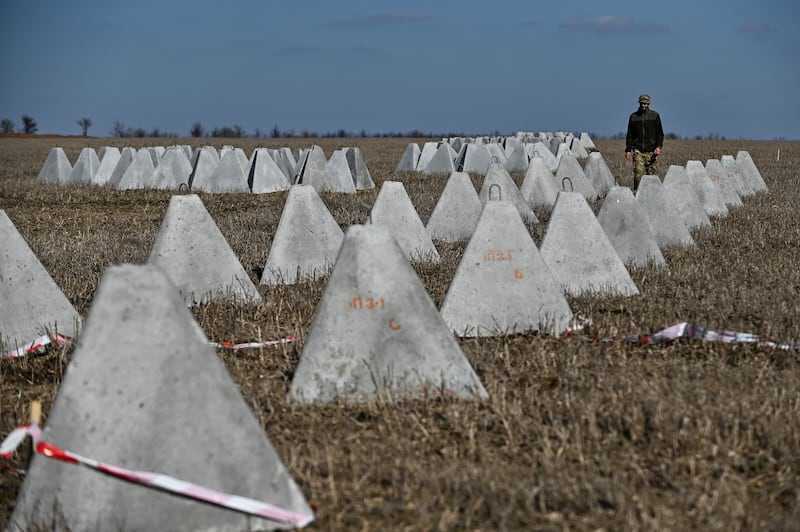Moscow’s missiles are raining down on Kyiv while Ukraine’s drones are seeking targets deep into Russian oil infrastructure but along the static casualty-strewn front line the war labours on in stalemate.
That has led to some European politicians breaking a taboo to suggest the sides contemplate a ceasefire, to “freeze” the war and eventually resolve it by diplomacy.
But the Kremlin’s new declaration that it is now a “war” in Ukraine rather than a “special military operation” dashes any minuscule hopes of peace.
If there is one thing Russia and Ukraine can now agree on, it is that with so much to gain and lose, neither has any appetite for a truce.
That leaves the conflict heading towards the bloody quagmire of the Iran-Iraq War, which dragged on for eight years with gains measured in metres and deaths in the hundreds of thousands.
Meanwhile, riding high on some military success, newly re-elected President Vladimir Putin is said to be preparing Russia for a war with Nato as early as 2026 once Ukraine is under his thumb.
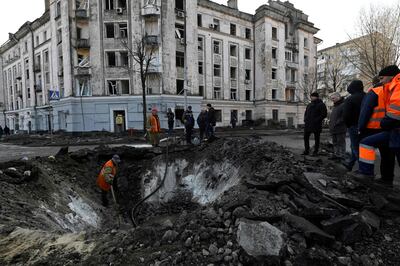
What chance peace?
Germany was the first to break the taboo on putting the war on hold when Rolf Mutzenich, leader of the Social Democrats’ parliamentary group, asked whether it was time to “think about how we can freeze the war and later end it”.
That was met with incredulity among his colleagues, with them pointing out the inevitably of a resurgent war at some point in the future, although Russia appears to want it now.
"We are at war," the Kremlin's spokesman Dmitry Peskov said on Friday. While it "started as a special military operation", the West had openly joined Ukraine's side and "it turned into war for us", omitting the point that it was Russia that invaded Ukraine twice, in 2014 and 2022.
Thus hopes of a peaceful resolution have long faded. It would take the Russians bearing down on Kyiv for any kind of compromise and “we need to settle or we lose the state”, said Orysia Lutsevych, a Ukrainian researcher at the Chatham House think tank.
“Then the only negotiated thing on the table would be Ukraine’s EU and Nato membership, that if you want to save your capital, the nation, you will be a neutral”, along with loss of territory Russia has seized since 2014 and the resignation of President Volodymyr Zelenskyy.
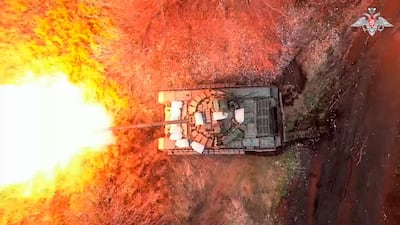
Ukrainians fully understand they are now fighting for their own survival and any deal will mean “in the end we have more war anyway”.
Sam Cranny-Evans, associate fellow at the Rusi think tank, thought Russia might end the war “if the right agreement was offered” but doubted that “would be even faintly palatable to the Ukrainians”.
And what concessions might Mr Putin make? At the very most it might be a demilitarised Crimea that still remains in Russian hands.
Ms Lutsevych, who arrived for the Kyiv Security Forum on Wednesday to a barrage of 31 Kinzhal hypersonic missiles followed by 90 more on Friday, questioned why Mr Putin should concede when he is riding high on electoral success and minor military victories.
“The time of off-ramps is over,” she said. “We are way beyond that point.”
Attrition trenches
Despite taking huge losses, including as many as 10,000 dead in February, the Russians continue to batter the 1,000 kilometre front line in several places after its bloody victory in Avdiivka last month.
But Ukraine has been able to withdraw and create in-depth defensive lines similar to the Russian lines it failed to breach with western-supplied tanks in summer.
Military commentators label it “attritional warfare” similar to the trenches of the First World War or the 1980s conflict between Iraq and Iran in which 500,000 soldiers died.
“A realistic assessment is the Iran-Iraq war where it was two economies up against each other, seeing who could outlast the other,” said Mr Cranny-Evans. “Barring the ability to amass a very large force to conduct a significant breakthrough, it's not going to be resolved quickly.”
And longer it goes on with increasingly heavier defences built, the “less likely it is to be resolved quickly”.
War in Europe?

One consequence of Russia’s battlefield success and America’s frozen military aid has been to focus European minds incisively.
A Nato aphorism for the Ukraine conflict is that “if you don’t fight them there, you will fight them here”. But the “here” is becoming closer.
Financial and military indicators point towards Russia “preparing for a large-scale conventional conflict with Nato”, the Washington-based Institute for the Study of War think tank reported this week.
Pan-European war might not be imminent, “but likely on a shorter timeline than what some western analysts initially posited”, it added.

A Polish assessment suggests an intent to attack Nato by 2026, while military commentator Col Hamish de Bretton-Gordon believes it could even be earlier.
The former British army officer said “there is one-in-there chance that we could be fighting the Russians in Europe in the next six to 12 months”.
Ms Lutsevych agreed Europe’s major powers were now fully alert to the threat that “the Russians are on the march and where they are marching is towards Europe”.
Nato in Ukraine
It was initially deemed fanciful last month when French President Emmanuel Macron suggested Nato troops should be on the ground in Ukraine.
That is being studied with greater intent now. Beyond the current handful of special forces operators and advisers in Ukraine, the idea would be to draft staff officers and senior soldiers into brigades to provide advice and training.
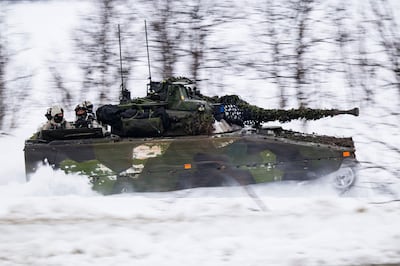
More drastically, some have suggested a Nato tripwire force in western Ukraine that denotes a red line for Russia.
“I actually agree with Macron, that we need to consider putting Nato boots into Ukraine,” said Col de Bretton-Gordon.
Security could be further enhanced if Europe made a significant defence pledge for 10 years and based defence companies in Ukraine, signalling it was prepared for a long war.
“We are at a critical juncture,” said Ms Lutsevych. “If Europe gets organised and if US stays on course, Putin has no chance.”
Battle to the death
While Mr Putin has the “upper hand”, the idea of his conquering Ukraine was “delusional” and taking a major city such as Odesa or Kharkiv will be hard. “They will choke on it,” she added.
And it was also not all doom and gloom for Ukrainian’s forces. There is the possibility that the lightspeed development of drones might soon give them a decisive edge, especially if AI can be used for drone swarms.
Indeed, Kyiv’s drone battalions are already having a marked effect on the deep-strike war swooping on Russia’s vulnerable oil refineries, causing enough damage to force Moscow to temporarily halt exports.
But Russia, too, has rebuilt its deep-strike capability with an accurate hit on three Ukraine helicopters parked near a road recently suggesting it has reconnaissance at depth.
There appears, said Ms Lutsevych, no other way than to describe the Ukraine war now as a battle to the death that is existential for both sides.
